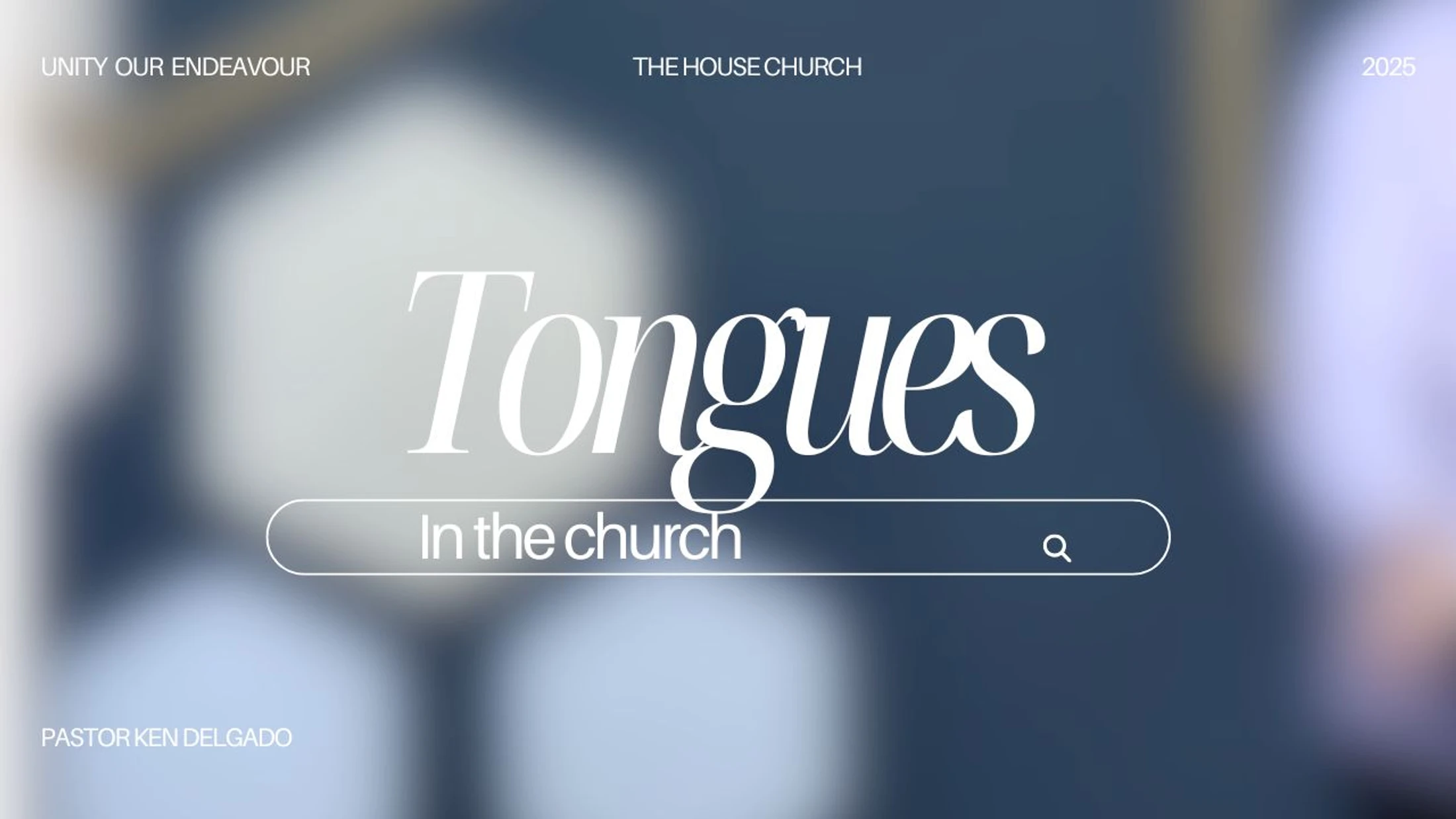The Power of Praise and the Gift of Tongues

In our journey of faith, we often encounter aspects of worship that may seem unfamiliar or even perplexing.
One such element is the gift of tongues - a spiritual practice that has sparked both fascination and confusion among believers. Today, let's delve into this topic with open hearts and minds, exploring its significance in our spiritual lives and corporate worship.
At the core of our faith lies the profound truth that we were created for praise. The Bible exhorts us to "clap your hands, all you people, and shout unto God with a voice of triumph." This isn't merely a suggestion; it's a divine invitation to engage in heartfelt worship. Jesus himself declared that if people didn't praise Him, the very rocks would cry out. Our praise isn't just a religious obligation; it's an expression of worth and value to the One who gave His all for us.
Consider for a moment the power of praise in our everyday relationships. Don't we all appreciate being encouraged and valued by our loved ones? In the same way, our worship brings worth to God, acknowledging His supremacy and goodness in our lives. It's not about feeding a divine ego; rather, it's about aligning our hearts with the reality of who God is and what He's done for us.
As we explore the concept of tongues in worship, it's crucial to understand that there are different types of tongues mentioned in Scripture. The apostle Paul, in 1 Corinthians 14, outlines three distinct categories:
Tongues that require interpretation - these are messages given to the church body.
Tongues directed to God that don't require interpretation - personal prayer language.
Tongues that edify or build up the individual's spirit.
In a corporate worship setting, it's essential to maintain order and understanding. Paul instructs that if someone speaks in a tongue that requires interpretation, there should be an interpreter present. If not, the person should "keep silent in the church and speak to himself and to God." This doesn't mean ceasing all use of tongues; rather, it's about using this gift appropriately within the context of corporate worship.
Interestingly, when the entire congregation is engaged in prayer or worship, speaking in tongues becomes a natural part of that collective expression. Just as we don't concern ourselves with understanding every word our neighbor is praying in English, we needn't be troubled by not comprehending their prayer in tongues. The focus is on each individual connecting with God in their unique way.
This principle extends to moments of spontaneous worship, where believers are encouraged to "sing a new song" to the Lord. These are precious times when we dig deep into our souls, reflecting on God's goodness and expressing our gratitude in fresh, heartfelt ways. It might be a song of thanksgiving for deliverance, a cry for help in troubled times, or simply an outpouring of love to our Savior.
As we navigate these waters of spiritual expression, it's vital to remember that the ultimate goal is edification - building up the body of Christ. Whether through prophecy, teaching, or tongues with interpretation, every gift should be exercised to strengthen and encourage the church.
For those who haven't experienced the gift of tongues or are unsure about it, it's important to approach the topic with an open heart. The baptism of the Holy Spirit, which often accompanies the gift of tongues, is a beautiful expression of God's desire to empower and equip His children for service and intimacy with Him.
At the heart of all these spiritual gifts and expressions lies the unchanging truth of God's love for us. Like the story of the adopted child who finally understood the depth of his new parents' love during a Thanksgiving meal, we too are invited to grasp the immensity of our Heavenly Father's love.
Many of us carry burdens from our past - memories of absent or abusive fathers, failures that haunt us, or a general sense of unworthiness. To all of us, Jesus extends an invitation: "Come to me, all you who are weary and burdened, and I will give you rest." He took upon Himself the punishment for our sins, enduring beatings so that we no longer need to beat ourselves up over our past mistakes.
The Father's heart cries out, "Come home!" He longs to place the ring of authority on our finger, to open the storehouses of His supply, and to cover us with the robe of sonship. This invitation is open to all - whether you're giving your heart to Jesus for the first time or rededicating your life after a season of wandering.
In response to this love, we're called to surrender - to lay down our past, our failures, and our faults at the feet of Jesus. By accepting Him as Lord and Savior, we open the door to a new life filled with forgiveness, purpose, and the power of the resurrection.
As we reflect on these truths, let's challenge ourselves to embrace a fuller expression of worship. Whether through traditional hymns, contemporary songs, or the gift of tongues, our goal should be to honor God with our whole hearts. Let's create space in our personal and corporate worship for the Holy Spirit to move, guiding us into deeper intimacy with our Creator.
Remember, the journey of faith is ongoing. We're all learning, growing, and discovering new depths of God's love and power in our lives. Whether you're exploring the gift of tongues for the first time or have been practicing it for years, the key is to remain open to how God wants to work in and through you.
May we all continue to seek the Lord with passion, allowing His Spirit to fill us afresh each day. As we do, we'll find ourselves naturally overflowing with praise, speaking life and love in ways that transcend human understanding and draw us ever closer to the heart of our loving Father.
